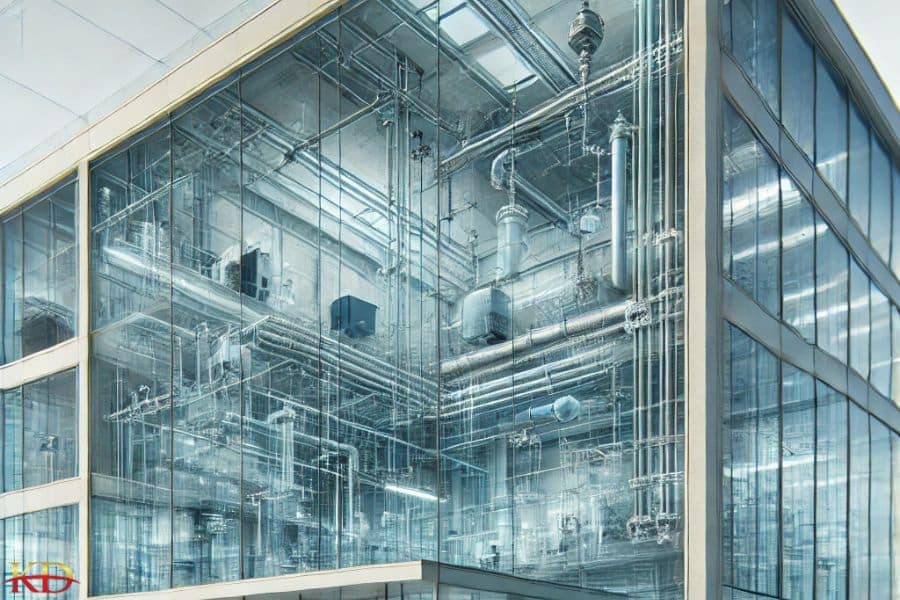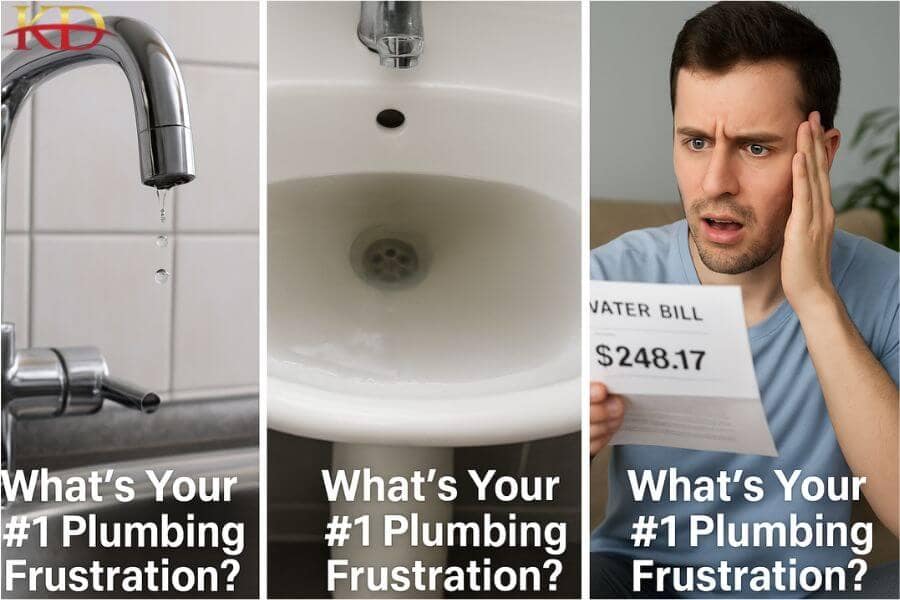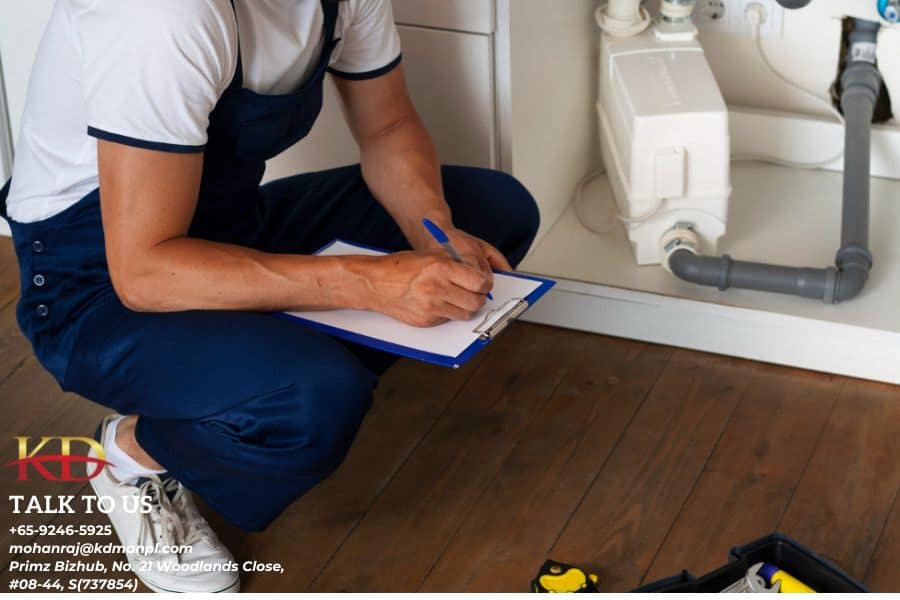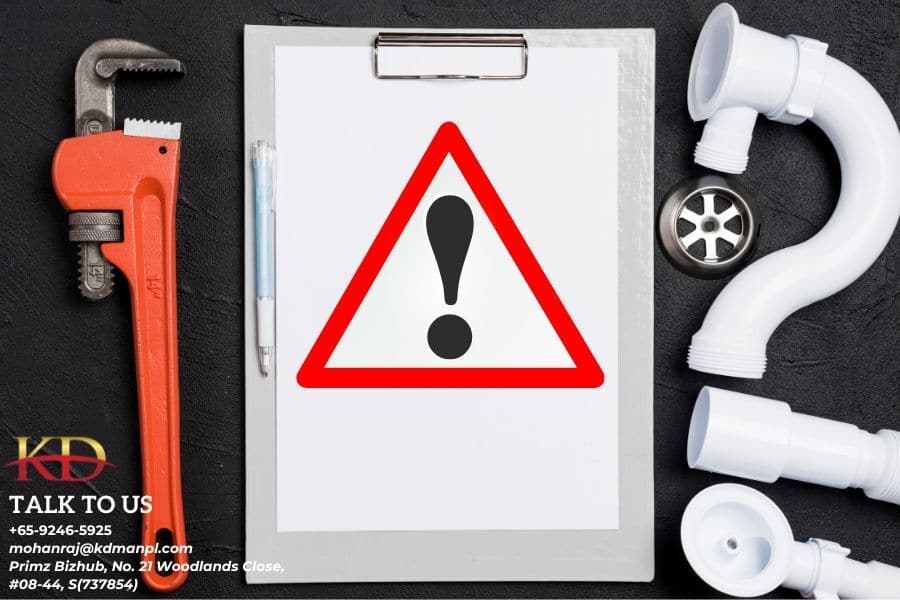When investing in a commercial property in Singapore, you evaluate factors like location, rental yield, and renovation costs. But one crucial element that is often overlooked? Plumbing health.
Hidden plumbing problems can turn your profitable investment into a financial disaster—leading to costly repairs, tenant complaints, and even business shutdowns. From concealed leaks to outdated drainage systems, here are the warning signs every property buyer should watch for.
10 Key Signs of Hidden Plumbing Issues
1. Water Stains & Ceiling Leaks
🔍 Look for: Yellowish stains, peeling paint, or warped ceilings.
📌 Why it matters: Singapore’s malls and offices have reported ceiling collapses due to water leaks. Poorly maintained pipes above ceilings can lead to structural weakening and expensive repairs.
💡 Case Study: In 2022, shoppers at Westgate Mall witnessed ceiling leaks from burst pipes on the fourth floor, flooding the lower levels. Incidents like these can severely impact a commercial property’s reputation and safety.
2. Mold, Mildew & Musty Smells
🔍 Look for: Dark spots on walls, floors, or air vents.
📌 Why it matters: Mold thrives in damp environments caused by hidden plumbing leaks. Long-term exposure can lead to respiratory issues—a major red flag for businesses like restaurants, clinics, and offices.
🚧 Regulatory Alert: Singapore’s Workplace Safety & Health Act requires landlords to maintain healthy indoor air quality. Unchecked mold problems could lead to legal liabilities and tenant disputes.
3. Low Water Pressure
🔍 Look for: Slow-running taps, weak shower pressure, or poor toilet flushing.
📌 Why it matters: Weak water flow could indicate pipe corrosion, leaks, or blockages. In commercial spaces, this can affect kitchen operations, employee washrooms, and fire sprinkler systems.
💡 Expert Tip: Run multiple taps in different locations at the same time. If pressure drops significantly, hidden pipe issues might be the culprit.
4. Unexpectedly High Water Bills
🔍 Look for: A sudden spike in utility bills without increased usage.
📌 Why it matters: High bills often signal undetected leaks in underground pipes or within walls. In large commercial buildings, even small leaks can add up to thousands in unnecessary costs.
📊 Data Point: A hidden leak in a shopping mall restroom can waste up to 50,000 liters of water per year, leading to higher PUB charges.
5. Slow or Clogged Drains
🔍 Look for: Water pooling in sinks, floor traps, or toilets that take too long to flush.
📌 Why it matters: Frequent clogs indicate grease buildup, debris blockages, or broken sewer pipes. Properties with F&B tenants should be extra cautious, as grease accumulation in pipes is a common issue.
💡 CCTV Drain Inspection: Before purchasing a commercial property, request a drainage check using CCTV cameras to identify deep blockages before they become a costly headache.
6. Gurgling Sounds from Pipes
🔍 Look for: Bubbling noises when using sinks, toilets, or floor drains.
📌 Why it matters: Gurgling sounds indicate trapped air in the pipes, a sign of blockages or ventilation issues in the drainage system.
🚨 Risk Factor: Poor drainage can cause sewage backups, which can shut down an entire commercial property and lead to serious hygiene violations.
7. Rusty or Corroded Pipes
🔍 Look for: Brown or orange stains on exposed pipes.
📌 Why it matters: Corroded pipes weaken over time and are prone to bursting. Many older buildings in Singapore still have galvanized iron pipes, which rust over time.
💡 Modern Solution: If the property still has old metal pipes, consider replacing them with PVC or stainless steel to prevent future leaks.
8. Toilet & Sewer Backups
🔍 Look for: Frequent toilet overflows or foul smells from floor traps.
📌 Why it matters: A failing sewer system is a major red flag. It could mean damaged underground pipes, collapsed drains, or backflow issues.
🚧 Legal Compliance: The PUB Sewerage & Drainage Act requires proper waste disposal systems. If the property fails inspections, owners may be fined or required to upgrade at their own cost.
9. Leaking Fire Sprinkler Systems
🔍 Look for: Dripping water from ceiling-mounted sprinklers.
📌 Why it matters: Sprinkler leaks often go unnoticed, but they pose serious fire safety hazards. Leaks reduce pressure in the system, meaning sprinklers may not function properly in an emergency.
💡 Inspection Tip: Ensure the building’s fire protection system is compliant with SCDF (Singapore Civil Defence Force) regulations.
10. Sudden Drop in Water Quality
🔍 Look for: Discolored water, sediment, or an unusual taste.
📌 Why it matters: Poor water quality can be a sign of pipe corrosion, bacterial contamination, or backflow issues.
🚧 Risk for Businesses: If the property serves restaurants, hotels, or healthcare facilities, poor water quality can lead to regulatory violations and reputational damage.
How to Protect Your Investment
✅ Hire a Licensed Plumber – A PUB-certified plumber can conduct a thorough property inspection before purchase.
✅ Request a CCTV Drain Inspection – This technology can reveal hidden blockages, tree root intrusion, and broken pipes.
✅ Check Past Utility Bills – Comparing past water bills can reveal trends in water wastage or leak issues.
✅ Test All Water Fixtures – Run taps, flush toilets, and observe drainage to identify pressure or clogging issues.
✅ Ask for Maintenance Records – Regular plumbing maintenance is a good sign, while frequent repairs might indicate chronic issues.
🔎 Final Thoughts
Plumbing problems may not always be visible, but they can cost thousands if left unchecked. Whether you’re buying an office, mall, or industrial property in Singapore, a detailed plumbing check should be part of your due diligence.
🚰💡 Thinking of buying a commercial property? Ensure your investment is leak-free! Book a professional plumbing inspection today.





Leave a Reply